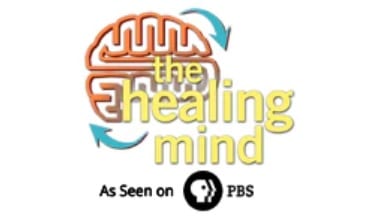On this page
At a glance
Stress arises from the challenging situations you face—or stressors—and how you respond to them. Any change can be a stressor, even changes that you may consider positive such as marriage or a new job. Unpleasant circumstances, from minor disappointments to major losses, can be huge stressors.
A cancer diagnosis is stressful for most people.1Fortin J, Leblanc M, Elgbeili G, Cordova MJ, Marin MF, Brunet A. The mental health impacts of receiving a breast cancer diagnosis: a meta-analysis. British Journal of Cancer. 2021;125:1582–1592. And, as CancerChoices co-founder Michael Lerner says, “Cancer is often piled on top of other stresses in your life. Cancer makes some life stresses worse. It helps you let go of others.”
“One of the greatest sources of stress is fear and loss. I’ve worked with fear and loss for many years—for myself and with others. I haven’t found a single path. Learning to stay present with fear and loss is a deep teaching.
Having something to believe in can make a profound difference in coping with stress. It doesn’t matter if your belief is religious, spiritual, family-focused, nature-focused, or some kind of purely personal belief. So there is no single way to manage stress with cancer. But there are many ways that people find work for them. Finding what works for you is profoundly important.”
How you respond to stress can impact your health, including the severity of side effects and symptoms, and may even influence your body terrainthe internal conditions of your body, including nutritional status, fitness, blood sugar balance, hormone balance, inflammation, and more and treatment outcomes.2Cooper K, Campbell F, Harnan S, Sutton A. Association between stress, depression or anxiety and cancer: rapid review of reviews. Comprehensive Psychoneuroendocrinology. 2023 Oct;16:100215; Falcinelli M, Thaker PH, Lutgendorf SK, Conzen SD, Flaherty RL, Flint MS. The role of psychologic stress in cancer initiation: clinical relevance and potential molecular mechanisms. Cancer Research. 2021;81(20):5131-5140; Magnon C. Cancer builds a noxious partnership with psychologic stress. Cancer Research. 2024;84(10):956-957.
The first step in managing stress is becoming aware of how you are reacting in your body, mind, and emotions to stressors in your life. If stress is a big actor in your life now, affecting your health and well-being, consider making managing your stress response a high priority in your integrative cancer care plan.
While some stressors cannot be avoided, you can control how you react to the stressors in your life. There are contributors to stress, like caffeine or poor sleep, that can be addressed to avoid excess stress. Stimulants such as ephedra, ginseng, and bitter orange can increase your stress response. In What practices and therapies can help with stress?, learn techniques that can help you better face the stressors in your life.
Do not be afraid to seek professional help if you need it. Diagnoses such as post-traumatic stress disorder (PTSD), depression, or anxiety can require therapy from trained practitioners for effective management. We encourage you to explore the options available to you through your cancer team and others. Taking care of your mental health is as important as taking care of your physical health.
(We emphasize that Managing Stress by itself will not likely prevent, cure, or control cancer. Like every other therapy or approach included on this website, Managing Stress is one component of an individualized integrative plan rather than a stand-alone therapy.)
How can Managing Stress help you? What the research says
Read the in-depth research here ›
Improving treatment outcomes
Lower stress levels are linked to improved survival outcomes in people with cancer. Across cancer types, higher stress levels or psychosocial stress factors are linked with increased mortality in both general and cancer-specific death rates.3Chida Y, Hamer M, Wardle J, Steptoe A. Do stress-related psychosocial factors contribute to cancer incidence and survival? Nature Clinical Practice. Oncology. 2008 Aug;5(8):466-75; Mathew A, Doorenbos AZ et al. Allostatic load in cancer: a systematic review and mini meta-analysis. Biological Research for Nursing. 2021 Jul;23(3):341-361; Cooper K, Campbell F, Harnan S, Sutton A. Association between stress, depression or anxiety and cancer: rapid review of reviews. Comprehensive Psychoneuroendocrinology. 2023 Oct;16:100215; Magnon C. Cancer builds a noxious partnership with psychologic stress. Cancer Research. 2024;84(10):956-957. In breast, kidney, and lung cancers, preliminary studies indicate that individuals with lower markers of stress may live longer and may have lower risks of relapse compared to those with higher markers of stress.4Forget P, Machiels JP et al. Neutrophil:lymphocyte ratio and intraoperative use of ketorolac or diclofenac are prognostic factors in different cohorts of patients undergoing breast, lung, and kidney cancer surgery. Annals of Surgical Oncology. 2013 Dec;20 Suppl 3:S650-60. People who have been diagnosed with lung cancer but have not yet begun primary treatment also have shorter survival if they have higher levels of interviewer-rated emotional distress.5Faller H, Bülzebruck H, Drings P, Lang H. Coping, distress, and survival among patients with lung cancer. Archives of General Psychiatry. 1999 Aug;56(8):756-62.
People with melanoma who experience partner bereavement have 17% higher mortality from melanoma within 5 years than those who are not in bereavement.6Wong AYS, Frøslev T et al. The association between partner bereavement and melanoma: cohort studies in the U.K. and Denmark. British Journal of Dermatology. 2020 Oct;183(4):673-683. Among men with early-stage prostate cancer, combining stress management with practices including diet, exercise, and social support has been shown to lower PSA levels (a marker of cancer activity), suggesting there are benefits to Managing Stress along with other healing practices.7Ornish D, Weidner G et al. Intensive lifestyle changes may affect the progression of prostate cancer. Journal of Urology. 2005 Sep;174(3):1065-9.
Optimizing your body terrain
Stress can significantly impact body terrain factors linked to cancer growth and spread, including blood sugar regulation, hormone balance, immune function, and inflammation. Preliminary evidence shows higher blood glucose levels in individuals reporting higher stress, likely due to the body’s hormonal response to stress.8Sancini A, Ricci S et al. Work related stress and blood glucose levels. Annali di Igiene: Medicina Preventiva e di Comunita. 2017 Mar-Apr;29(2):123-133. This response makes blood sugar harder to control for 6-8 hours after stress exposure, because of increased glucose release and lower cell sensitivity to insulin.9Diabetes Education Online. Blood Glucose & Stress in Diabetes. University of California, San Francisco. Viewed September 16, 2022. Chronic stress can also interfere with normal hormone regulation, leading to persistent disruptions in cortisol levels.10Hannibal KE, Bishop MD. Chronic stress, cortisol dysfunction, and pain: a psychoneuroendocrine rationale for stress management in pain rehabilitation. Physical Therapy. 2014 Dec;94(12):1816-25.
Stress impacts inflammation and the immune system as well. People with post-traumatic stress disorder (PTSD) have been found to have elevated markers of inflammation.11Renna ME, O’Toole MS, Spaeth PE, Lekander M, Mennin DS. The association between anxiety, traumatic stress, and obsessive-compulsive disorders and chronic inflammation: a systematic review and meta-analysis. Depression and Anxiety. 2018 Nov;35(11):1081-1094. Similarly, a prolonged or exaggerated response to stress may contribute to widespread inflammation.12Hannibal KE, Bishop MD. Chronic stress, cortisol dysfunction, and pain: a psychoneuroendocrine rationale for stress management in pain rehabilitation. Physical Therapy. 2014 Dec;94(12):1816-25. Stress alters immune activity, increasing neutrophil counts and decreasing lymphocyte levels, which changes the neutrophil-to-lymphocyte ratio (NLR).13Farkas J. PulmCrit: Neutrophil-Lymphocyte Ratio (NLR): Free upgrade to your WBC. EMCrit. May 23, 2019. Viewed September 25, 2021. A persistently high NLR due to ongoing stress can indicate a state of chronic inflammation, which is associated with an increased risk of health conditions like cardiovascular disease and cancer.14Li GP, Zhang D et al. Association between the neutrophil-to-lymphocyte ratio and cancer in adults from NHANES 2005–2018: a cross-sectional study. Scientific Reports. 2024;14:23678; Bagyura Z, Kiss L et al. Neutrophil-to-lymphocyte ratio is an independent risk factor for coronary artery disease in central obesity. International Journal of Molecular Sciences. 2023 Apr;24:7397.
Managing side effects and promoting wellness
Managing stress plays a role in reducing anxiety and depression among people with cancer. Better acceptance of cancer is associated with lower anxiety and distress and lower levels of depression, while poor acceptance is linked to higher levels of both general and cancer-specific distress, as well as depression.15Secinti E, Tometich DB, Johns SA, Mosher CE. The relationship between acceptance of cancer and distress: a meta-analytic review. Clinical Psychology Review. 2019 Jul;71:27-38.
Stress management also appears to positively influence quality of life, function, and pain.16Chirico A, Lucidi F et al. A meta-analytic review of the relationship of cancer coping self-efficacy with distress and quality of life. Oncotarget. 2017 May 30;8(22):36800-36811; Alabdaljabar MS, Muhsen IN, Knight JM, Syrjala KL, Hashmi SK. Free of malignancy but not of fears: a closer look at Damocles syndrome in survivors of hematologic malignancies. Blood Reviews. 2021 Jul;48:100783; McDonough MH, Sabiston CM, Wrosch C. Predicting changes in posttraumatic growth and subjective well-being among breast cancer survivors: the role of social support and stress. Psycho-Oncology. 2014 Jan;23(1):114-20; Hannibal KE, Bishop MD. Chronic stress, cortisol dysfunction, and pain: a psychoneuroendocrine rationale for stress management in pain rehabilitation. Physical Therapy. 2014 Dec;94(12):1816-25; Zaza C, Baine N. Cancer pain and psychosocial factors: a critical review of the literature. Journal of Pain and Symptom Management. 2002 Nov;24(5):526-42; Portenoy RK, Payne D, Jacobsen P. Breakthrough pain: characteristics and impact in patients with cancer pain. Pain. 1999 May;81(1-2):129-34; Spiegel D, Sands S, Koopman C. Pain and depression in patients with cancer. Cancer. 1994 Nov 1;74(9):2570-8; Koopman C, Hermanson K, Diamond S, Angell K, Spiegel D. Social support, life stress, pain and emotional adjustment to advanced breast cancer. Psycho-Oncology. 1998 Mar-Apr;7(2):101-11. People with greater self-efficacyan individual's belief in their capacity to act in the ways necessary to reach specific goals. in coping with cancer and less fear of recurrence report better quality of life and lower distress.17Chirico A, Lucidi F, Merluzzi T, Alivernini F, Laurentiis M, Botti G, Giordano A. A meta-analytic review of the relationship of cancer coping self-efficacy with distress and quality of life. Oncotarget. 2017 May 30;8(22):36800-36811. On the other hand, those with higher levels of fear and uncertainty about cancer recurrence, including among people with blood cancers, experience reduced quality of life.18Alabdaljabar MS, Muhsen IN, Knight JM, Syrjala KL, Hashmi SK. Free of malignancy but not of fears: a closer look at Damocles syndrome in survivors of hematologic malignancies. Blood Reviews. 2021 Jul;48:100783. Stress and distress are linked to increased pain among cancer patients, with studies noting a relationship between higher pain levels and higher levels of emotional distress.19Hannibal KE, Bishop MD. Chronic stress, cortisol dysfunction, and pain: a psychoneuroendocrine rationale for stress management in pain rehabilitation. Physical Therapy. 2014 Dec;94(12):1816-25. A research group found that pain in people with cancer can lead to depression, anxiety, and distress.20Spiegel D, Sands S, Koopman C. Pain and depression in patients with cancer. Cancer. 1994 Nov 1;74(9):2570-8; Portenoy RK, Payne D, Jacobsen P. Breakthrough pain: characteristics and impact in patients with cancer pain. Pain. 1999 May;81(1-2):129-34.
Read about strategies to manage side effects related to stress
Reducing cancer risk
Stress and how individuals manage it can influence their risk of developing cancer. People with better stress-management skills or less distress have lower overall cancer risks.21Batty GD, Russ TC, Stamatakis E, Kivimäki M. Psychological distress in relation to site specific cancer mortality: pooling of unpublished data from 16 prospective cohort studies. BMJ. 2017 Jan 25;356:j108; Chida Y, Hamer M, Wardle J, Steptoe A. Do stress-related psychosocial factors contribute to cancer incidence and survival? Nature Clinical Practice. Oncology. 2008 Aug;5(8):466-75. A meta-analysis of 165 studies found that stress-prone personalities, poor coping styles, and negative emotional responses increase cancer risk. Specific stressful life events do not have a direct impact on developing cancer (though these events were connected to higher cancer mortality).22Chida Y, Hamer M, Wardle J, Steptoe A. Do stress-related psychosocial factors contribute to cancer incidence and survival? Nature Clinical Practice. Oncology. 2008 Aug;5(8):466-75. These findings suggest that it is not only external events, but also how people respond to these stressful events, that influence health.
What practices and therapies can help with stress?
Below we list evidence-based therapies and practices to manage stress. Follow the links in the paragraphs below to read more about how these practices and therapies affect cancer in various ways, including their relationships to side effects like stress. Anxiety and stress are closely related: review our page on managing anxiety for additional evidence-based therapies. Sleep disruption is also linked to stress and vice versa. See our page on Sleeping Well.
Evidence-based therapies to manage stress
Physical activity, including tai chi and qigong, leads to lower physical markers of stress in people with cancer. Among people with prostate cancer, there is evidence that high-intensity interval training lowers perceived stress.23de Sousa CV, Sales MM, Rosa TS, Lewis JE, de Andrade RV, Simões HG. The antioxidant effect of exercise: a systematic review and meta-analysis. Sports Medicine. 2017 Feb;47(2):277-293; Strehli I, Burns RD, Bai Y, Ziegenfuss DH, Block ME, Brusseau TA. Mind-body physical activity interventions and stress-related physiological markers in educational settings: a systematic review and meta-analysis. International Journal of Environmental Research and Public Health. 2020 Dec 30;18(1):224; Kang DW, Fairey AS, Boulé NG, Field CJ, Wharton SA, Courneya KS. A randomized trial of the effects of exercise on anxiety, fear of cancer progression and quality of life in prostate cancer patients on active surveillance. Journal of Urology. 2022 Apr;207(4):814-822. Yoga can lessen psychological stress and distress in people with cancer, and there’s some evidence to show that laughter yoga may reduce stress before chemotherapy treatments.24Farifteh S, Mohammadi-Aria A, Kiamanesh A, Mofid B. The impact of laughter yoga on the stress of cancer patients before chemotherapy. Iranian Journal of Cancer Prevention. 2014 Fall;7(4):179-83; Hsueh EJ, Loh EW, Lin JJ, Tam KW. Effects of yoga on improving quality of life in patients with breast cancer: a meta-analysis of randomized controlled trials. Breast Cancer. 2021 Mar;28(2):264-276; Buffart LM, van Uffelen JG et al. Physical and psychosocial benefits of yoga in cancer patients and survivors, a systematic review and meta-analysis of randomized controlled trials. BMC Cancer. 2012 Nov 27;12:559; Rao RM, Vadiraja HS et al. Effect of yoga on sleep quality and neuroendocrine immune response in metastatic breast cancer patients. Indian Journal of Palliative Care. 2017 Jul-Sep;23(3):253-260; Sohl SJ, Tooze JA et al. A randomized controlled pilot study of yoga skills training versus an attention control delivered during chemotherapy administration. Journal of Pain and Symptom Management. 2022 Jan;63(1):23-32; Ross Zahavich AN, Robinson JA, Paskevich D, Culos-Reed SN. Examining a therapeutic yoga program for prostate cancer survivors. Integrative Cancer Therapies. 2013 Mar;12(2):113-25.
Progressive muscle relaxation with guided imagery leads to less distress among people with cancer and possibly among people with cancer in hospice, as well as less tension in parents of children hospitalized with cancer. People who listen to pleasant, calming sounds have faster stress-recovery processes in laboratory experiments and better self-reported health conditions than people who do not.25Aletta F, Oberman T, Kang J. Associations between positive health-related effects and soundscapes perceptual constructs: a systematic review. International Journal of Environmental Research and Public Health. 2018 Oct 29;15(11):2392.
Social support also plays a role in managing stress response: adults with cancer have fewer posttraumatic stress symptoms and higher posttraumatic growth if they have social support.26Shand LK, Cowlishaw S, Brooker JE, Burney S, Ricciardelli LA. Correlates of post-traumatic stress symptoms and growth in cancer patients: a systematic review and meta-analysis. Psychooncology. 2015 Jun;24(6):624-34. Women with breast cancer who have less social support or are unmarried are at higher risk of distress,27Syrowatka A, Motulsky A et al. Predictors of distress in female breast cancer survivors: a systematic review. Breast Cancer Research and Treatment. 2017;165(2):229-245. and women who have recently completed breast cancer treatment may have less post-traumatic growth (positive psychological change after stressful life events) if they have less social support.28McDonough MH, Sabiston CM, Wrosch C. Predicting changes in posttraumatic growth and subjective well-being among breast cancer survivors: the role of social support and stress. Psycho-Oncology. 2014 Jan;23(1):114-20. There is conflicting evidence on the effect of support groups; among women with breast cancer, some studies found fewer symptoms of stress and distress among those who participated in online or in-person support groups, while others found no significant differences.29Syrowatka A, Motulsky A et al. Predictors of distress in female breast cancer survivors: a systematic review. Breast Cancer Research and Treatment. 2017;165(2):229-245; Schou Bredal I, Kåresen R et al. Effects of a psychoeducational versus a support group intervention in patients with early-stage breast cancer: results of a randomized controlled trial. Cancer Nursing. 2014 May-Jun;37(3):198-207; Richardson MA, Post-White J et al. Coping, life attitudes, and immune responses to imagery and group support after breast cancer treatment. Alternative Therapies in Health and Medicine. 1997 Sep;3(5):62-70; Winzelberg AJ, Classen C, Alpers GW, Roberts H, Koopman C, Adams RE, Ernst H, Dev P, Taylor CB. Evaluation of an internet support group for women with primary breast cancer. Cancer. 2003 Mar 1;97(5):1164-73; Schofield P, Gough K et al. A nurse- and peer-led psycho-educational intervention to support women with gynecological cancers receiving curative radiotherapy: The PeNTAGOn randomised controlled trial – ANZGOG 1102. Gynecologic Oncology. 2020 Dec;159(3):785-793; Angell KL, Kreshka MA et al. Psychosocial intervention for rural women with breast cancer: the Sierra-Stanford Partnership. Journal of General Internal Medicine. 2003 Jul;18(7):499-507.
The effects of probiotics and prebiotics on stress have also been mixed, with some studies finding lower self-reported stress or cortisol levels (stress markers) among people taking probiotics, and other studies finding no significant differences in stress between those who took probiotics and those who did not.30Zhang N, Zhang Y et al. Efficacy of probiotics on stress in healthy volunteers: a systematic review and meta-analysis based on randomized controlled trials. Brain and Behavior. 2020 Sep;10(9):e01699; McKean J, Naug H, Nikbakht E, Amiet B, Colson N. Probiotics and subclinical psychological symptoms in healthy participants: a systematic review and meta-analysis. Journal of Alternative and Complementary Medicine. 2017 Apr;23(4):249-258; Wang P, Yin X et al. Perioperative probiotic treatment decreased the incidence of postoperative cognitive impairment in elderly patients following non-cardiac surgery: a randomised double-blind and placebo-controlled trial. Clinical Nutrition. 2021 Jan;40(1):64-71; Haarhuis J, Kardinaal A, Kortman GAM. Probiotics, prebiotics and postbiotics for better sleep quality: a narrative review. Beneficial Microbes. 2022 Aug 3;13(3):169-182.
Time in nature and forest bathing (walking mindfully through forests) can lead to less stress. In studies not limited to people with cancer, those who lived near denser vegetation were less likely to develop neurotic and stress-related disorders.31Engemann K, Pedersen CB et al. Residential green space in childhood is associated with lower risk of psychiatric disorders from adolescence into adulthood. Proceedings of the National Academy of Sciences. 2019 Mar 12;116(11):5188-5193. Those who listened to nature-based sounds experienced less stress and annoyance.32Buxton RT, Pearson AL, Allou C, Fristrup K, Wittemyer G. A synthesis of health benefits of natural sounds and their distribution in national parks. Proceedings of the National Academy of Sciences of the United States of America. 2021 Apr 6;118(14):e2013097118.
Cognitive behavioral therapy (CBT) is a type of psychotherapy that can alleviate anxiety, stress, and depression in both children and adults with cancer.33Liu T, Xu J et al. Effects of internet-based cognitive behavioral therapy on anxiety and depression symptoms in cancer patients: a meta-analysis. General Hospital Psychiatry. 2022 Sep;79:135-145; Melesse TG, Chau JPC, Nan M. Effects of cognitive-behavioural therapy on psychological, physical, and social outcomes of children with cancer: a systematic review and meta-analysis. Journal of Psychosomatic Research. 2022 Mar;157:110805; Yu S, Liu Y et al. Effectiveness of internet-based cognitive behavioral therapy for patients with cancer: a systematic review and meta-analysis of randomized controlled trials. Cancer Nursing. 2023;00:1-17. CBT usually involves efforts to change unhelpful thinking and behavioral patterns.34American Psychological Association. Clinical Practice Guideline for the Treatment of PTSD: What is Cognitive Behavioral Therapy? Viewed February 13, 2025. This psychological treatment can even be effectively conducted with therapists online to reduce anxiety, depression, and distress.35Liu T, Xu J et al. Effects of internet-based cognitive behavioral therapy on anxiety and depression symptoms in cancer patients: a meta-analysis. General Hospital Psychiatry. 2022 Sep;79:135-145; Yu S, Liu Y et al. Effectiveness of internet-based cognitive behavioral therapy for patients with cancer: a systematic review and meta-analysis of randomized controlled trials. Cancer Nursing. 2023;00:1-17.
Some stress management practices and therapies show promise but need further investigation. There is some limited evidence that acupuncture lowers self-rated stress among people with cancer,36Fink J, Burns J et al. A quality brief of an oncological multisite massage and acupuncture therapy program to improve cancer-related outcomes. Journal of Alternative and Complementary Medicine. 2020 Sep;26(9):820-824. though there is a slightly stronger link between acupuncture and lower levels of anxiety among people undergoing chemotherapy, as well as among people about to have surgery.37Bao T, Baser R et al. Health-related quality of life in cancer survivors with chemotherapy-induced peripheral neuropathy: a randomized clinical trial. Oncologist. 2021 Nov;26(11):e2070-e2078; Zhang ZJ, Man SC et al. Electroacupuncture trigeminal nerve stimulation plus body acupuncture for chemotherapy-induced cognitive impairment in breast cancer patients: An assessor-participant blinded, randomized controlled trial. Brain, Behavior, and Immunity. 2020 Aug;88:88-96; Oteri V, Martinelli A, Crivellaro E, Gigli F. The impact of preoperative anxiety on patients undergoing brain surgery: a systematic review. Neurosurgical Review. 2021 Feb 19. Acupuncture can also help people with cancer who are experiencing depression.38D’Alessandro EG, da Silva AV et al. Acupuncture for climacteric-like symptoms in breast cancer improves sleep, mental and emotional health: a randomized trial. Medical Acupuncture. 2022 Feb 1;34(1):58-65; Li H, Schlaeger JM et al. Acupuncture improves multiple treatment-related symptoms in breast cancer survivors: a systematic review and meta-analysis. Journal of Alternative and Complementary Medicine. 2021 Dec;27(12):1084-1097; Lian JL, Wu XM, Sun X, Wang YJ, Li YH. [Effect of Tiaodu Jieyu acupuncture on cancer-related depression: a randomized controlled trial]. Zhongguo Zhen Jiu. 2021 Apr 12;41(4):381-5. Chinese.
Healing touch, heart-centered energy therapy using gentle, intentional touch, has been shown in small studies to help lower stress in adults and children with cancer.39Wong J, Ghiasuddin A, Kimata C, Patelesio B, Siu A. The impact of healing touch on pediatric oncology patients. Integrative Cancer Therapies. 2013 Jan;12(1):25-30; Weze C, Leathard HL, Grange J, Tiplady P, Stevens G. Evaluation of healing by gentle touch in 35 clients with cancer. European Journal of Oncology Nursing. 2004 Mar;8(1):40-9. Mindfulness interventions help people pay conscious attention to the present and accept their experiences in a nonjudgmental way.40Carlson LE, Doll R et al. Randomized controlled trial of mindfulness-based cancer recovery versus supportive-expressive group therapy for distressed survivors of breast cancer. Journal of Clinical Oncology. 2013;31(25):3119-3126. These interventions range from meditation to mindful walking and mindful cognitive therapy, and can reduce symptoms of stress, anxiety, depression, and fatigue.41Chayadi E, Baes N, Kiropoulos L. The effects of mindfulness-based interventions on symptoms of depression, anxiety, and cancer-related fatigue in oncology patients: a systematic review and meta-analysis. PLoS ONE. 2022 Jul;17(7):e0269519; Ding X, Zhao F et al. A systematic review and meta-analysis of interventions to reduce perceived stress in breast cancer patients. Complementary Therapies in Clinical Practice. 2024;54:101803; Li J, Li C et al. Effectiveness of mindfulness-based interventions on anxiety, depression, and fatigue in people with lung cancer: a systematic review and meta-analysis. International Journal of Nursing Studies. 2023;140:104447.
A meta-analysis found that music therapy during chemotherapy treatments (be it recorded or live, and researcher- or patient-selected) could reduce anxiety and improve quality of life.42Nguyen KT, Xiao J, Chan DNS, Zhang M, Chan CWH. Effects of music intervention on anxiety, depression, and quality of life of cancer patients receiving chemotherapy: a systematic review and meta-analysis. Supportive Care in Cancer. 2022 Feb;30:5615-5626. However, the meta-analysis authors considered the studies they analyzed to be at high risk of bias. Likewise, when researchers looked at the effects of medicinal cannabis on stress, anxiety, and depression among people with cancer, results were inconclusive and the meta-analysis authors had low confidence in the findings.43Crichton M, Dissanayaka T et al. Does medicinal cannabis affect depression, anxiety, and stress in people with cancer? A systematic review and meta-analysis of intervention studies. Maturitas. 2024 Feb;184:107941. Immersive virtual reality-based experiences have helped distract people getting cancer treatments from their anxiety, depression, and distress. This is a relatively new therapy, but recent meta-analyses have pointed to its efficacy.44Gautama MSN, Huang TW, Haryani H. A systematic review and meta-analysis of randomized controlled trials on the effectiveness of immersive virtual reality in cancer patients receiving chemotherapy. European Journal of Oncology Nursing. 2023 Sep;67:102424; Wu Y, Wang N, Zhang H, Sun X, Wang Y, Zhang Y. Effectiveness of virtual reality in symptom management of cancer patients: a systematic review and meta-analysis. Journal of Pain and Symptom Management. 2023 May;65:e467-e482.
The botanical supplement ashwagandha may help reduce stress, but it’s important to consult with your doctor before starting any supplement. Some evidence suggests avoiding Ashwagandha if you have a hormonally sensitive cancer, like prostate cancer.45Lopresti AL, Smith SJ et al. An investigation into the stress-relieving and pharmacological actions of an ashwagandha (Withania somnifera) extract: A randomized, double-blind, placebo-controlled study. Medicine (Baltimore). 2019 Sep;98(37):e17186; Memorial Sloan Kettering Cancer Center. Ashwagandha: Purported Benefits, Side Effects & More. April 24, 2024. Viewed March 8, 2025; Mikulska P, Malinowska M et al. Ashwagandha (Withania somnifera)-current research on the health-promoting activities: a narrative review. Pharmaceutics. 2023 Mar 24;15(4):1057. People taking ashwagandha have reported lower stress levels and lower anxiety across several studies.46Akhgarjand C, Asoudeh F et al. Does Ashwagandha supplementation have a beneficial effect on the management of anxiety and stress? A systematic review and meta-analysis of randomized controlled trials. Phytotherapy Research. 2022 Nov;36(11):4115-4124; Majeed M, Nagabhushanam K, Mundkur L. A standardized Ashwagandha root extract alleviates stress, anxiety, and improves quality of life in healthy adults by modulating stress hormones: Results from a randomized, double-blind, placebo-controlled study. Medicine (Baltimore). 2023 Oct 13;102(41):e35521. People taking ashwagandha have also shown lower levels of cortisol and dehydroepiandrosterone-sulphate (DHEA-S), both of which are key markers of the body’s stress response,47Lopresti AL, Smith SJ et al. An investigation into the stress-relieving and pharmacological actions of an ashwagandha (Withania somnifera) extract: A randomized, double-blind, placebo-controlled study. Medicine (Baltimore). 2019 Sep;98(37):e17186; Majeed M, Nagabhushanam K, Mundkur L. A standardized Ashwagandha root extract alleviates stress, anxiety, and improves quality of life in healthy adults by modulating stress hormones: Results from a randomized, double-blind, placebo-controlled study. Medicine (Baltimore). 2023 Oct 13;102(41):e35521. at doses between 200 and 500 mg daily.
Recommendations for caregivers with stress
These practices and approaches are recommended specifically for caregivers:48Mayo Clinic staff. Caregiver stress: Tips for taking care of yourself. Mayo Clinic. March 22, 2022. Viewed May 24, 2022.
- Accept help
- Focus on what you are able to provide
- Set realistic goals
- Join a support group
- Seek social support
- Set personal health goals
- See your doctor if you’re having trouble sleeping
Healing stories
Helpful links

Relieving Stress and Anxiety ›
Free mobile app, but full functionality requires purchase of a sensor to provide heart rate variability coherence feedback
Videos
Remembering Ourselves through Breathing with Rachel Naomi Remen, MD
Play videoResponding to Uncertainty without Fear: Tips for Patients and Professionals with Wayne Jonas, MD
Play videoRelated resources
References







